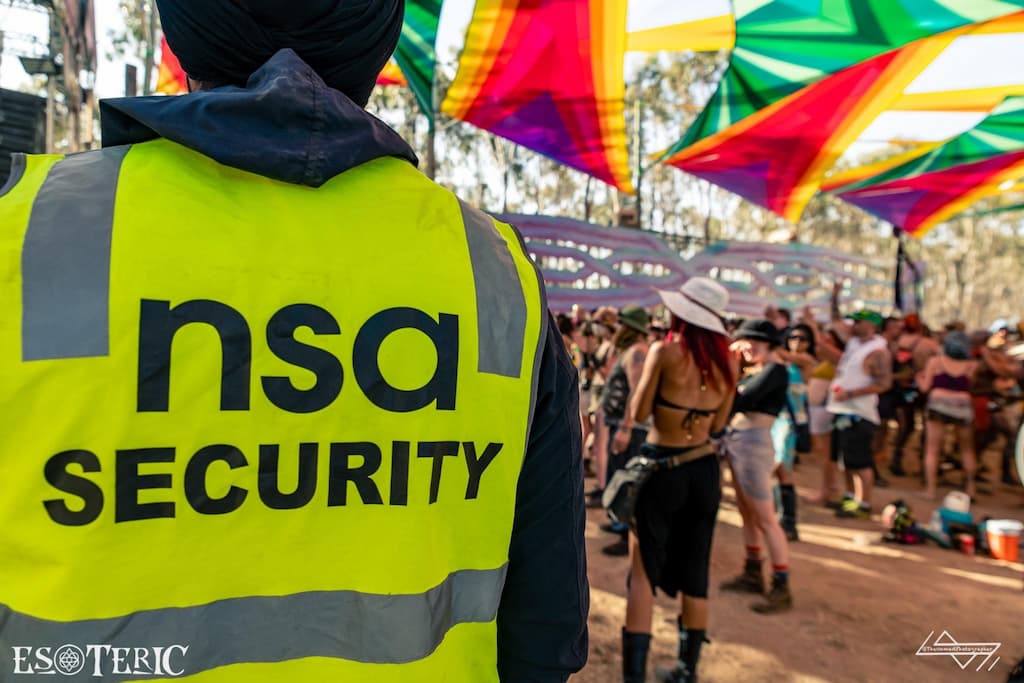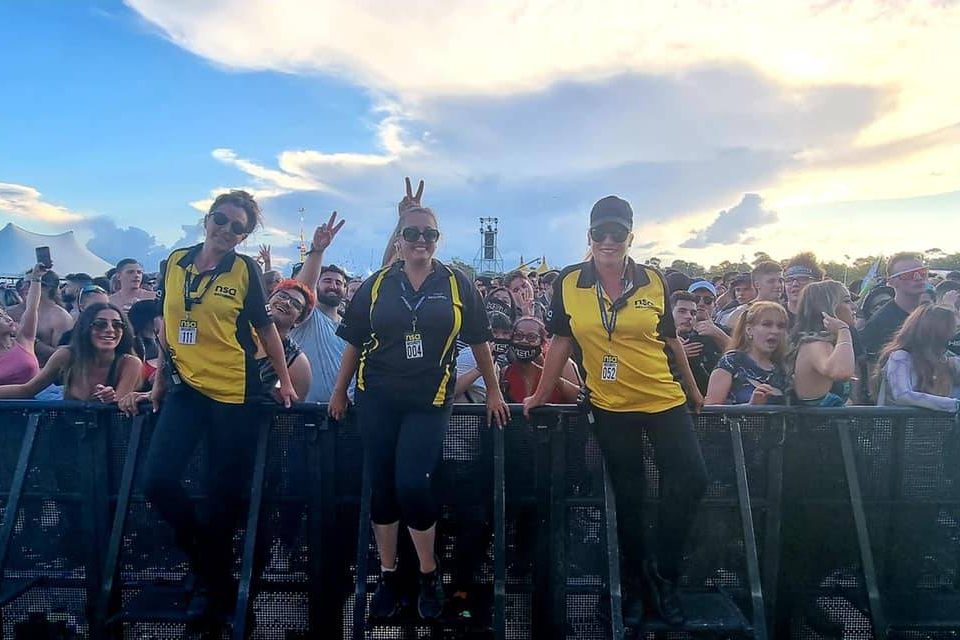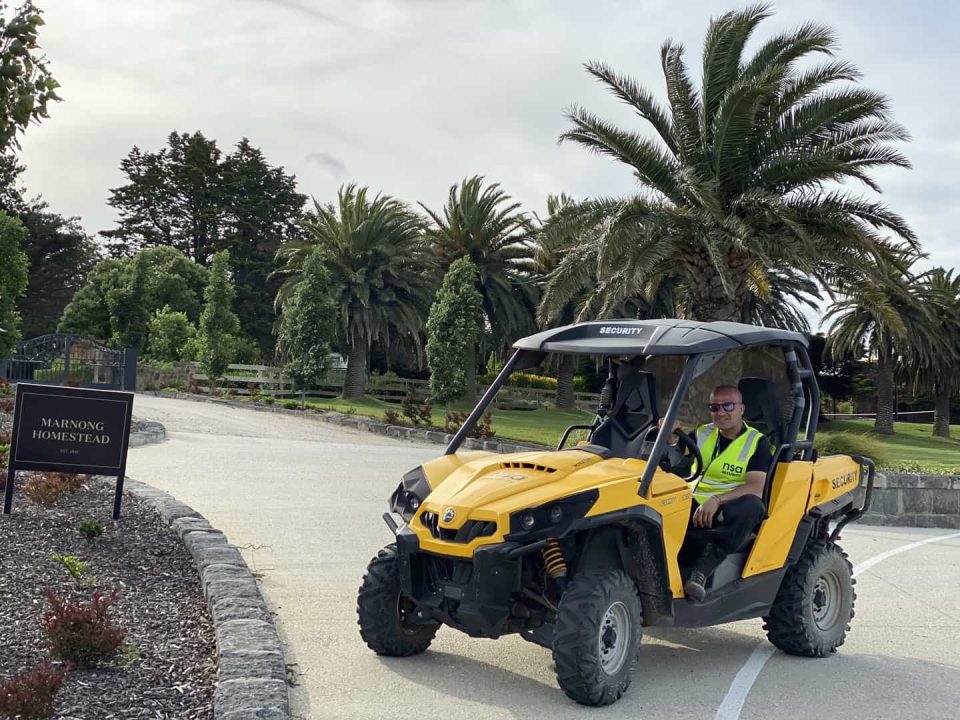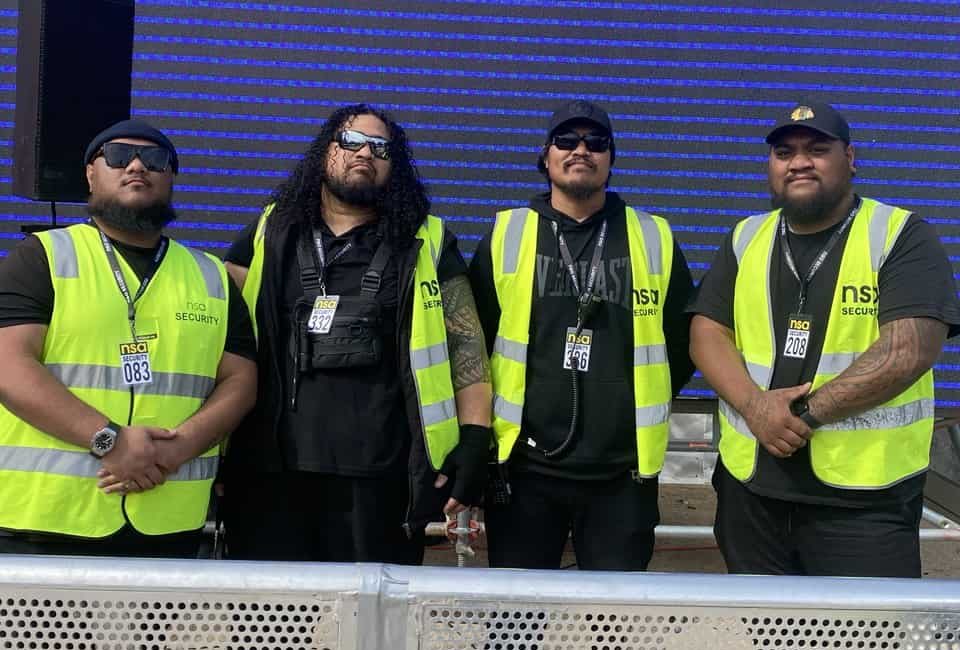

The primary difference between a bodyguard and a security guard lies in their specific roles, responsibilities, and the contexts in which they operate.
To compare them further, we’ve broken down these factors into four specific aspects.
Here’s a table for a quick overview, then scroll down for an in-depth comparison.
| Points of Difference | Bodyguard | Security Guard |
| Primary Focus | Personal protection | Property and public safety |
| Duties | Risk assessment, escort services, physical protection, route planning, and emergency response | Access control, surveillance, incident response, customer service, and reporting |
| Skills and Training | Advanced training and situational awareness | Basic training and observational skills |
| Work Environment | Works in close proximity to the client at various locations | Performs routine patrols at fixed locations |
1. Primary Focus
The main responsibility of a bodyguard, also known as a close protection officer, is to ensure the personal safety and security of an individual or a small group of individuals (often high-profile or at-risk persons such as celebrities, politicians, executives, etc.).
On the other hand, the main responsibility of a security guard is to protect property, assets, and people in a specific location, such as a retail store, office building, event venue, or residential complex.
2. Duties
Bodyguards are in charge of the continuous assessment of potential threats to the client. They also accompany the client during their daily activities, including travel, public appearances, and private events.
Other bodyguarding duties include physically intervening to protect the client from harm, planning and securing travel routes and locations to avoid potential threats, and quickly and effectively responding to any immediate threats or emergencies involving the client.
In contrast, security guard are responsible for monitoring and controlling entry and exit points to prevent unauthorised access. They also conduct regular patrols and monitor security cameras to detect suspicious activities.
When necessary, security guards respond to alarms, emergencies, and other incidents to ensure safety and security.
Other security guarding duties include assisting visitors and employees with directions and information, and documenting incidents and providing detailed reports to management or law enforcement.

3. Skills and Training
Bodyguards typically receive specialised training in defensive tactics, firearms, evasive driving, first aid, and threat assessment. They have highly developed skills in situational awareness and quick decision-making.
On the contrary, security guards typically receive training in basic security procedures, communication skills, and emergency response. They have strong observational skills to notice and report unusual activities.
4. Work Environment
Bodyguards often work in close proximity to their client. If required, they may live or travel with them to perform this role.
They are also used to working in a variety of settings, including public places, private residences, and during travel.
On the other hand, security guards perform routine patrols within their designated area to maintain a visible security presence. They are usually assigned to specific locations where they perform their duties.
Conclusion
Bodyguards focus on the personal protection of individuals, requiring specialised training and skills to handle high-risk situations and provide close, personal security.
Security guards focus on protecting property and public safety within a specific location, often involving more routine tasks such as monitoring and access control.
Both roles are vital to maintaining safety and security, but they operate in different contexts and require different skill sets and approaches.
Do you need a bodyguard or security guard for safety and protection? Contact the nsa security team 1300 135 950 or email us at admin@nsasecurity.com.au for a consultation.




